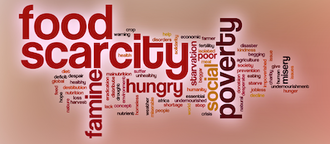Are we feeding ourselves frustration, anger and despair?

Source: Jesuit Institute South Africa
What do you eat, and how does that affect you? I have been pondering this question over the last while and, recently, was having a conversation with a friend about this. In the discussion, he pointed towards a book by the famous Buddhist monk, Thich Nhat Hanh, entitled Anger. Wisdom for Cooling the Flames. I was fascinated that, in the first chapter, Hanh suggests that we should consider what we eat if we want to begin to let go of anger.
Hanh explains how the whole human person is integrated. What he says is familiar to the Christian tradition. He rejects any dualism - body/soul. Hanh says that our frustration, anger, and despair have as much to do with what we eat as our psychology.
Centuries ago, a Christian mystic, St Ignatius Loyola, knew this too. In his Spiritual Exercises, Ignatius offers eight reflections on "the taking of food". In the third one, he says we need to practice abstinence in food intake. Ignatius explains: "the appetite is more prone to become disordered, so its temptation is more likely to assail us" (#212). He warns that we can be totally "dominated by the appetite" (#215).
The consumption of cultural items is also linked to anger. What we consume with our eyes and ears - on TV, in magazines, on the internet - impacts us in detrimental ways. We might, for example, see a lot of violence or sexual promiscuity, which damages our souls.
My friend lives on a farm. He told me how aware he has become of the desperate cries of cows whose calves have been taken from them for production purposes. The mother cries all night, a deep groan of anguish and anger as her flesh has been taken from her. The violence of this is rooted in human consumption, in our appetite.
Chickens are kept in chicken runs, some never seeing the light of day or the blue sky above because they are produced for the satisfaction of humans. They have their eggs taken from them and are culled to feed humans. We can say the same about the production of beef.
There is an inherent violation, violence, in the system to satisfy human beings. Hanh says that when we consume the violence meted out on nature, "you are eating anger, you are eating frustration". He suggests that the food we eat plays out in our anger. As he puts it: "Our food may contain anger".
For centuries people who have taken spiritual life seriously have, on their journey, had to confront questions about their consumption. In our contemporary world, we might look at this and think it is extreme or perhaps "new age". However, there is a long and constant tradition of those who seek a relationship with the Divine confronting their appetites and consumption.
I am not suggesting that you are not spiritual unless you are vegetarian! However, I wonder what God's invitation might be to us as we live in a world of increasingly violent consumerism and consumption. What might God be inviting us to do as we face climate change and its catastrophic results? What might God invite us to do as we experience more violence and wars? Is God inviting us to take stock of our consumerist attitudes - and, perhaps, carefully consider what and how much anger we eat?
LINKS
Follow the Jesuit Institute on Twitter @JesuitInstitute
Jesuit Institute South Africa: www.jesuitinstitute.org.za/


















